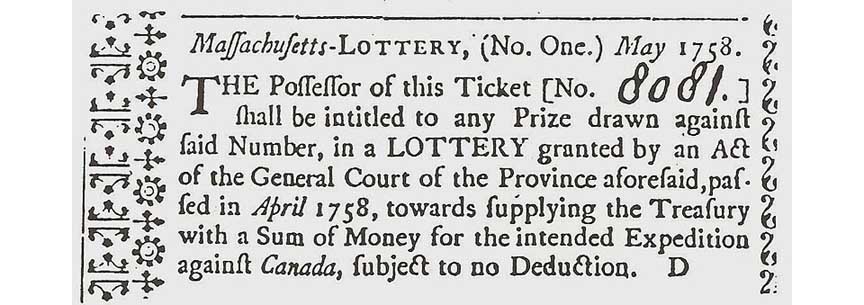
|
|
|
What's IotD? The interesting, amazing, or mind-boggling images of our days. |
|
IotD Stuff |
|
Permalink Latest Image |
|
|
|
Some folks who have noticed IotD
Neatorama |
|
Common image haunts
Astro Pic of the Day |
|
Advertising |
April 23rd, 2017: Philadelphia Lottery
Gambling, not gamboling, although there’s plenty of that too.
|
In the late 19th century, Ainsworth Rand Spofford, the sixth Librarian of Congress, went looking through America’s early newspapers for the earliest notice of a lottery he could find. What he found had been published in February 1720, in the American Weekly Mercury. This lottery was not the colonies’ first, Spofford cautions—only the first for which he could find a printed notice. The ad promised 350 tickets would be sold, for 20 shillings a piece. The prize? “A new brick house, corner of Third and Arch,” in Philadelphia. |

|
As Philadelphia came to surpass Boston as the colonies’ largest city, its growth was funded in no small part by lotteries. “It was looked upon as a kind of voluntary tax for paving streets, erecting wharves, buildings, etc., with a contingent profitable return for such subscribers as held the lucky numbers,” wrote Spofford in 1893. Philadelphians used lotteries to build a battery on the Delaware River to defend the city, span creeks with bridges, and fund roads that led from the countryside into the city. But it was far from the only city in the American colonies that depended on people’s willingness to try their luck. In the 17th and 18th centuries, lotteries were a thriving business, both public and private, and without them, early America couldn’t have been built. |

|
When the colonies revolted against the crown, lotteries helped the new United States of America survive. In 1776, the Constitutional Congress held one to benefit the soldiers of the Revolution. (Since the value of the new country’s currency was fluctuating wildly, it was less successful than hoped.) |


|
But in the 19th century, the popularity of lotteries waned as they were haunted by corruption. It was easy enough to announce a lottery, sell tickets, and abscond with the money without offering a prize. In New York and Massachusetts, lotteries were banned in the 1830s, and later in the century most states followed suit. Government lotteries wouldn’t become popular again until the second half of the 20th century, when states started using them once again—to raise revenue without raising taxes. |

link
|
Your reply here?
The Cellar Image of the Day is just a section of a larger web community: a bunch of interesting folks talking about everything. Add your two cents to IotD by joining the Cellar. |